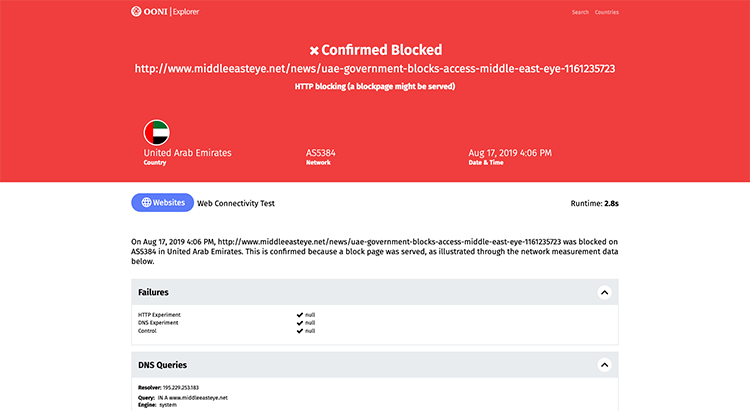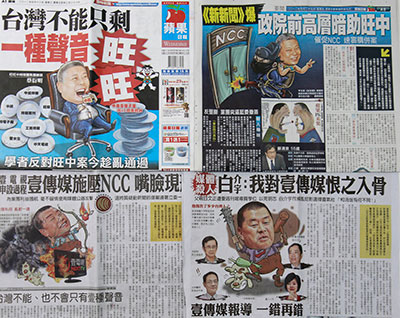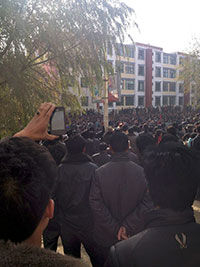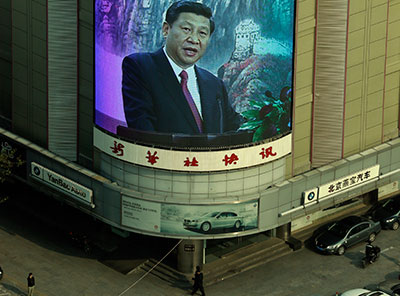Madeline Earp
Madeline Earp is a consultant technology editor for CPJ. She has edited digital security and rights research for projects including five editions of Freedom House’s Freedom on the Net report, and is a former CPJ Asia researcher.

Outlawing TikTok may not impede journalists, but U.S. and India bans could set a risky precedent
“Allison, can Trump ban TikTok?” Dave Jorgenson, The Washington Post’s self-described “TikTok Guy” asks in an August 3 video on the app. His colleague Allison Michaels responds: “The answer is yes, but how he can do it is kind of complicated…” It would be a typical exchange between journalists, but for the surreal setup: Jorgenson is standing over a birdbath, asking…

Laws, cheap web filters arm Russia to block news, says Censored Planet
When Daniil Kislov tried to view the website of Fergana from his computer in Moscow on November 1, his browser showed him the now-familiar notification that the independent news outlet he directs had been blocked by order of Roskomnadzor, the national agency that regulates the internet in Russia, he told CPJ. Fergana has been blocked…

Q&A: OONI Explorer team unlock the web’s untold censorship stories
The internet is not one network, but thousands of interconnected networks. How can anyone know how they are controlled without inspecting them all? In 2012, the Open Observatory of Network Interference (OONI) set out to do just that. A program run by the Seattle-headquartered Tor Project, OONI created OONI Probe, software that anyone can use…

Kazakhstan’s move to control internet prompts censorship, surveillance concerns
A state-controlled internet service provider in Kazakhstan is requiring at least some of its subscribers to submit to having their internet traffic intercepted when they use specific websites–including social media sites, email and messaging services, and Google News, according to research published this week by Censored Planet, a project at the University of Michigan.

For clues to censorship in Hong Kong, look to Singapore, not Beijing
When journalists covering pro-democracy demonstrations in Hong Kong on September 28, 2014, got word that protesters were having problems with cell phone service, it appeared to be a familiar response from governments across the world to dissent.

In Southern Weekly versus censors, cautious optimism
There is cautious optimism among China media watchers this morning over the news that a deal has been struck between censors and protesting journalists at China’s Southern Weekly news magazine, which is also known as Southern Weekend. The journalists will not face reprisals for their protest, and propaganda authorities will not repeat the editing stunt…

Taiwanese media sale could threaten press freedom
A media buyout in Taiwan which would put independent news outlets critical of China into the hands of a pro-Beijing media tycoon is cause for concern for the island’s press. Jimmy Lai, the outspoken mogul behind Hong Kong-based Next Media and the Apple Daily tabloid, is selling his Taiwan holdings to a group of businessmen…

Confusion grows around missing Tibetan monk filmmaker
Not unusually, an already confusing situation in Tibet just got worse. Twenty-seven Tibetans have self-immolated in protest against Chinese this month alone, according to Human Rights Watch. That’s almost one a day. Against this chaotic backdrop, Chinese authorities have issued an arrest order for a missing monk who helped film a 2008 documentary about life…

What China’s new leadership means for press freedom
Like many China watchers, we at CPJ have been struggling to interpret obscure floor markings and tie colors on display in Beijing as new Communist Party leaders were appointed in a rare leadership hand-off today. The names of the top seven are no longer in doubt. But the real question everyone’s asking is: What does…